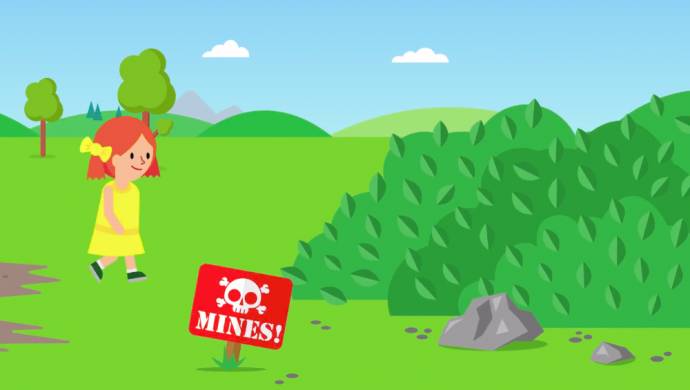STA, March 10, 2018 – The Slovenian-run demining fund ITF (International Trust Fund) Enhancing Human Security is celebrating its 20th anniversary this weekend. Its boss Tomaž Lovrenčič labelled the fund "a Slovenian organisation with global reach and excellent donor support, especially from the US".
ITF was established on 12 March 1998 by the Slovenian government in cooperation with the US. The letter of intent was signed by Foreign Minister Boris Frlec and Secretary of State Madeline Albright, while the driving force of the process was Ambassador Roman Kirn.
The objective in 1998 was to help demine Bosnia-Herzegovina after the war and provide aid to mine victims.
"Two decades after those humble beginnings, this organisation is now present in 17 countries," said Lovrenčič, listing Kyrgyzstan, Afghanistan, Lebanon, Bosnia-Herzegovina, Serbia, Montenegro, Albania, Libya, the ECOWAS countries, the Caucasus and Columbia, among others.
The results of the ITF's work are remarkable, as the organisation cleared 148 million square metres of surfaces contaminated with mines and unexploded devices. The work is slow and demands precision, Lovrenčič pointed out.
The fund helped treat and rehab more than 1,300 mine victims. "This means they got prosthetics for limbs they lost" and most of this help was provided by experts at the Ljubljana-based Soča Rehabilitation Institute.
Moreover, the fund organised awareness courses about mine risks that were attended by more half a million people living in mine-contaminated areas. Many of them were children, said Lovrenčič, adding that children have an especially high risk of getting injured by a mine.
Children now account for nearly half of all mine victims. Many were born after the conflicts took place and do not understand that they are in jeopardy due to remnants of war.
Lovrenčič moreover said that the fund had very good relations with its donors. The US is by far the most generous among them, having contributed more than EUR 200m by donating and doubling the contributions of all the other countries.
The ITF boss also believes that the current US administration will increase the contribution to the ITF. Other major donors include Norway, Germany, Slovenia, South Korea and Japan.
The fund faces new challenges in the future, the biggest being urban fighting in the Middle East. The upcoming projects in Iraq, maybe Syria, will be "even more dangerous and complicated" than the work so far because the fighting had moved from forests and fields to the cities.
Because fighting is still ongoing Syria, the ITF cannot start helping yet. They are preparing a project to start demining the southwest of the country, but the situation remains very demanding because "we also need to make sure that the deminers are safe".
Safety is also a major issue in Afghanistan, where the deminers are frequently targetted by snipers, Lovrenčič said. The project in Afghanistan is the ITF's biggest at the moment, involving 163 people.
The fund also pays special attention to social reintegration of victims. "This is an especially big problem with children, so we really focus in our programmes to reintroduce children to school and encourage sports activities."
He hopes that the fund, a small organisation with only 16 employees, will be able to continue its work in the future. To mark the anniversary of the ITF, President Borut Pahor will host a reception on Sunday, and a panel debate will be held on Monday.






